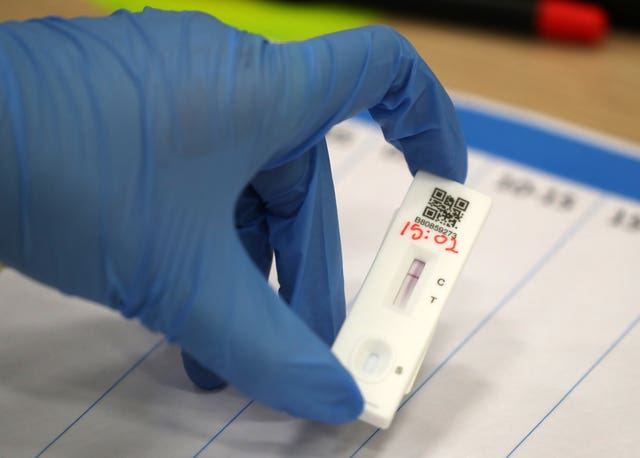Scientists develop ‘transformative’ saliva Covid test
Those behind the University of Edinburgh pilot project said it is potentially more accurate, less invasive and cheaper than current methods.

A university is trialling the use of saliva samples to test for Covid-19, a move researchers claim could be “transformative” for screening large numbers of people and cuts the risk of community transmission.
Scientists behind the pilot TestEd scheme at the University of Edinburgh said it is potentially more accurate, less invasive and cheaper than current tests.
The tests use a saliva sample in a tube which undergoes hypercube sample pooling to allow dozens of samples to be PCR-tested simultaneously.
Pooling the samples reduces the costs and time involved in processing existing PCR tests but maintains accuracy, researchers said, unlike the lateral flow tests which are available to those without symptoms but are less accurate.
The saliva tests will be offered twice-weekly to all students and staff as they return to campus and aim to detect infections before symptoms appear to minimise transmission.
TestEd chief investigator Professor Tim Aitman said: “The rise in cases caused by the Delta variant and the subsequent pause in the easing of restrictions are a timely reminder that we will be living with this disease for some time.
“Against this backdrop, TestEd addresses three key challenges of Covid-19 testing to keep workplaces safe: its ease of use makes it highly acceptable to people, its pooling of samples makes it affordable, and its use of PCR technology maintains high levels of accuracy.
“TestEd is a transformative approach for testing very large numbers for Covid-19 and for keeping organisations and communities safe.”
More than 18,000 tests have been carried out since the project began in January and researchers now plan to carry out half a million tests by the end of the year, having recently secured an £1.8 million Medical Research Council grant to scale up and prove the system works.
If the pilot project is successful, researchers hope it could be used to provide regular testing in offices, schools and factories.

University of Edinburgh senior vice-principal Professor Jonathan Seckl said: “The pandemic has been in a phase of relatively low levels of infection in the community, but cases are now increasing and Covid-19 remains a serious risk to health.
“Therefore having a non-invasive, accurate and affordable method to screen large groups of people in the workplace or centres of education is a high priority.
“TestEd offers the promise to provide just such a test with real advantages over the existing approaches. I recommend taking part in the study to all students and staff on a regular basis.”
Researchers are urging students and staff to volunteer for the scheme to support the development of the technology, but at the same time they are also being advised to use Government-provided free lateral flow tests.





